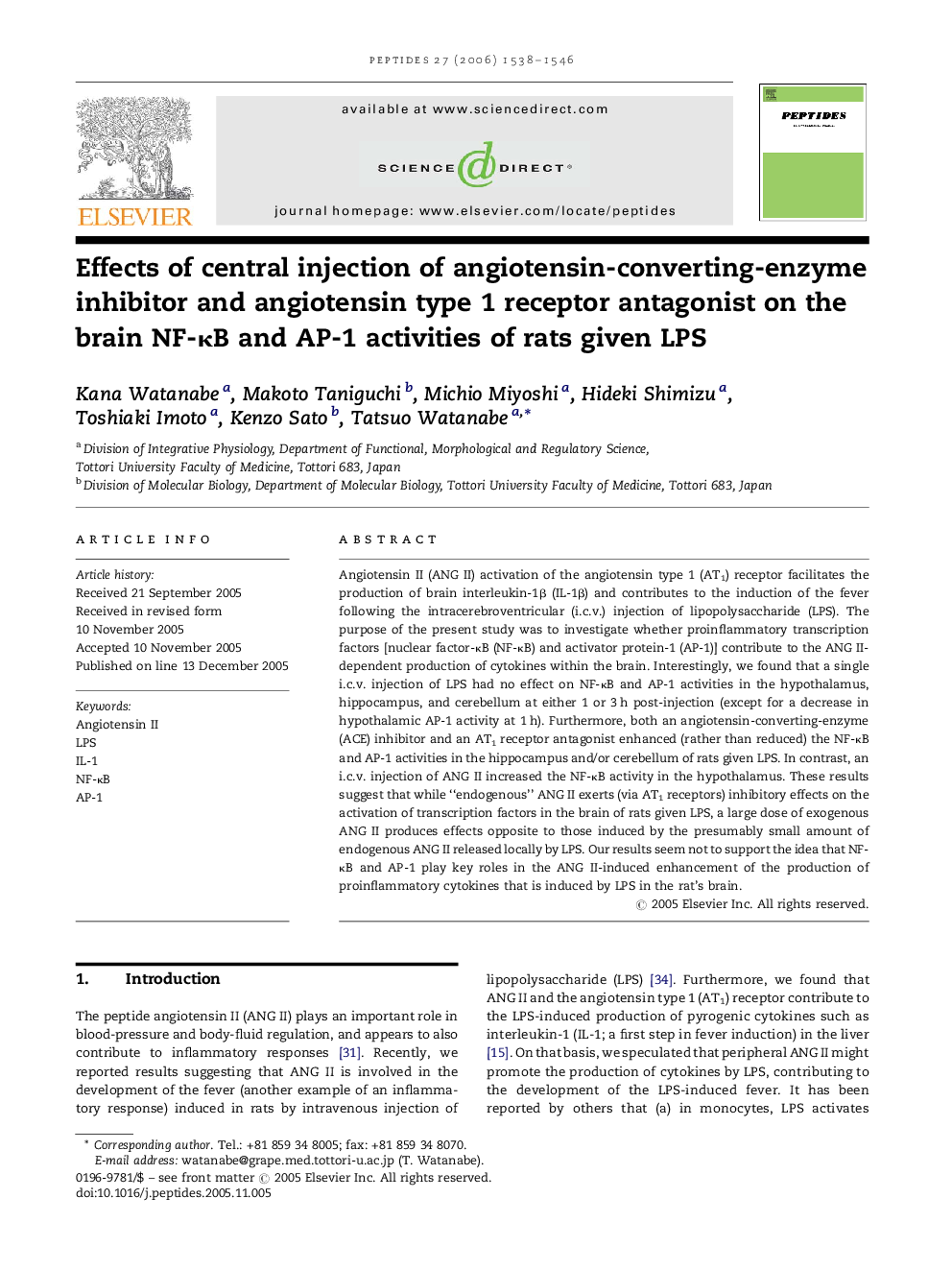| Article ID | Journal | Published Year | Pages | File Type |
|---|---|---|---|---|
| 2008639 | Peptides | 2006 | 9 Pages |
Angiotensin II (ANG II) activation of the angiotensin type 1 (AT1) receptor facilitates the production of brain interleukin-1β (IL-1β) and contributes to the induction of the fever following the intracerebroventricular (i.c.v.) injection of lipopolysaccharide (LPS). The purpose of the present study was to investigate whether proinflammatory transcription factors [nuclear factor-κB (NF-κB) and activator protein-1 (AP-1)] contribute to the ANG II-dependent production of cytokines within the brain. Interestingly, we found that a single i.c.v. injection of LPS had no effect on NF-κB and AP-1 activities in the hypothalamus, hippocampus, and cerebellum at either 1 or 3 h post-injection (except for a decrease in hypothalamic AP-1 activity at 1 h). Furthermore, both an angiotensin-converting-enzyme (ACE) inhibitor and an AT1 receptor antagonist enhanced (rather than reduced) the NF-κB and AP-1 activities in the hippocampus and/or cerebellum of rats given LPS. In contrast, an i.c.v. injection of ANG II increased the NF-κB activity in the hypothalamus. These results suggest that while “endogenous” ANG II exerts (via AT1 receptors) inhibitory effects on the activation of transcription factors in the brain of rats given LPS, a large dose of exogenous ANG II produces effects opposite to those induced by the presumably small amount of endogenous ANG II released locally by LPS. Our results seem not to support the idea that NF-κB and AP-1 play key roles in the ANG II-induced enhancement of the production of proinflammatory cytokines that is induced by LPS in the rat's brain.
